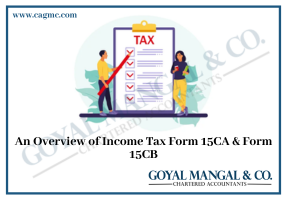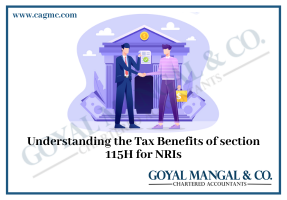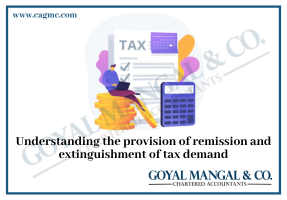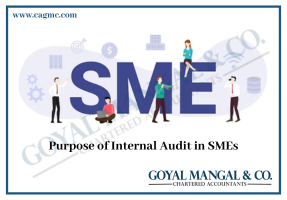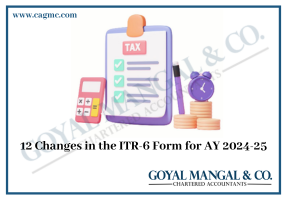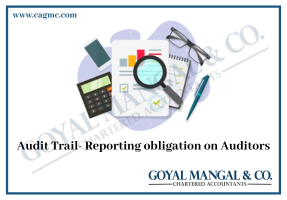
The Submission of Investment Proof is a crucial component of the income tax procedure in India. The process of tax filing provides the accurate determination of an individual’s tax liability and facilitates the identification and utilization of eligible deductions and exemptions. The procedure may initially appear a bit hectic; however, be assured that we have compiled this comprehensive article to provide a straightforward and convenient experience so that you can understand proof for investment submission for Income Tax for salaried employees.
Table of Contents
How salaried employees can save on tax?
- House Rent Allowance (HRA) benefit: If you are currently residing in a rented accommodation, you can avail of exemptions on your HRA by submitting rent receipts for investment proof and a copy of your rental agreement.
- Section 80 C deductions: The salaried employee can take a deduction of 80C up to Rs, 150000 by claiming a deduction for investment such as provident fund, LIC, FD or equity saving scheme, tuition fees, EPF, or PPF investment proof.
- Standard deduction: Salaried Individuals are eligible to deduct a standard deduction of a specific amount from their salary, thereby diminishing the amount of their taxable income.
- opt for National Pension System (NPS): Investing in NPS can provide additional deductions under Section 80CCD(1B).
- Health Insurance Premium: Purchase health insurance to claim deductions under Section 80D.
- Education Loan Interest: If you have an education loan, the interest paid is eligible for deductions under Section 80E.
- Home Loan Interest and Principal: The principal amount and interest on home loans have separate deductions under Sections 80C and 24(b).
- Invest in Equity-linked Savings Schemes (ELSS): ELSS mutual funds offer both tax benefits and the potential for returns. ELSS investment proof must be submitted.
- Tax-saving Bonds: Invest in government-approved tax-saving bonds to reduce your taxable income.
- Donations: Donations to approved charitable institutions can be claimed as deductions under Section 80G.
- National Savings Certificate (NSC): NSCs are another option for deductions under Section 80C.
- Tax-saving FDs: Banks offer tax-saving FDs that provide deductions under Section 80C.
- Savings Account Interest: The interest earned on savings accounts can be claimed as deductions under Section 80TTA.
- Special Allowances: Check if you’re eligible for deductions on special allowances such as transport allowance or children’s education allowance.
Remember to keep proper records and documents for investment proof and expenses to claim deductions correctly.
Obligations and responsibilities of employees regarding the submission of proof.
Following are the obligations and duties of employees regarding proof submission:
- Tax Planning Understanding: Employees must possess a fundamental understanding of tax planning. A comprehensive understanding of the laws, exemptions, and deductions provided under the Income Tax Act, of 1961 is essential. Knowing these rules will empower employees to make well-informed decisions on investments and spending that can lead to tax savings. Tax saving techniques refer to the practice of utilizing legal strategies and provisions under the tax code to minimize an individual’s or entity’s tax liability.
- Documentation: The maintenance of accurate documentation is of utmost importance in providing evidence for tax-saving claims. Employees need to maintain a comprehensive record of all expenses that meet the criteria for potential deductions. The aforementioned items encompass rent receipts, medical bills, investment proofs, and home loan statements, among other relevant documents.
- Income tax return filing: Employees have the responsibility of ensuring the accurate and timely submission of their income tax forms. The information mentioned should be accurate and real, inaccurate or false information submission can lead to legal consequences.
- Investment proof submission: To access tax advantages, employees are required to present investment proofs to their employers. The proofs may encompass investments made in the Public Provident Fund (PPF), National Savings Certificates (NSC), Employee Provident Fund (EPF), and other qualifying financial instruments.
- Learning about Changes to Tax Laws: In a continuously developing county tax laws are prone to changes. The employees must be updated about the recent tax laws, new rules, deductions, or exemptions so that they can take the maximum tax savings.
Obligations and responsibilities of employers regarding the submission of proof.
Following are the obligations and duties of employers regarding proof submission:
- Providing appropriate salary structure & components: Employers bear the responsibility of establishing an appropriate salary structure for their employees, incorporating elements that enable tax savings. The components encompassed in this category consist of House Rent Allowance (HRA), Tax-Exempted Allowances, and contributions to the Provident Fund.
- Provision of Form 16 and Salary Certificates: In the capacity of an employer, it is imperative to furnish Form 16, a document that presents a comprehensive overview of an employee’s income and the corresponding tax withholdings over the fiscal year. Furthermore, companies should provide salary certifications, as these documents may be necessary for loan applications or rental agreements.
- TDS deduction: Regarding the deduction of taxes at the source, it is imperative for employers to properly withhold taxes from the salaries of their employees and promptly remit these funds to the government within the designated timeframe. Tax Deducted at Source (TDS) is a mechanism that facilitates the prompt collection of tax revenues and prevents the entire burden from being borne only by employees.
- Ensuring Adherence to Statutory Reporting Obligations: Employers are legally obligated to adhere to statutory reporting obligations. This includes the prompt submission of tax returns, the provision of employees’ investment proofs, and the diligent maintenance of precise payroll records.
- Importance of Employee Education in Tax Planning: Employers are encouraged to assume a proactive stance in providing comprehensive education to their employees regarding tax planning strategies and the various tax-saving opportunities that exist. The implementation of workshops or the supply of learning resources can facilitate employees in making well-informed financial decisions.
Takeaway
In conclusion, it can be said that the responsibility of reporting tax-saving information to employers and providing valid documentation for tax deductions is an obligation of both employees and employers. It would be good if employees could possess knowledge about tax provisions and schemes and should be ready with the documentation required for tax deductions. Similarly, employers bear the responsibility of ensuring compliance with legal obligations and facilitating tax planning initiatives for their employees. By conducting their designated obligations and roles, both employees and employers have the potential to make valuable contributions toward optimizing tax savings and improving financial stability.

